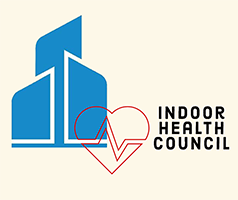W. Edwards Deming and Professional Cleaning
W. Edwards Deming, a renowned statistician, professor, author, and management consultant, introduced several principles and methods that can significantly benefit professional cleaning industry training efforts. Let’s explore how Deming’s teachings can be applied:
1. System of Profound Knowledge (SOPK):
Deming’s SOPK emphasizes understanding the interconnectedness of systems and processes. It comprises four interrelated components:
I. Appreciation for a System: Recognize that cleaning services are part of a larger system (e.g., building maintenance, customer satisfaction, resource allocation).
II. Knowledge of Variation: Understand that variation exists in cleaning processes and outcomes. Use statistical tools to analyze and reduce variability.
III. Theory of Knowledge: Base decisions on evidence and data. Encourage a culture of continuous learning and improvement.
IV. Psychology: Consider human behavior, motivation, and communication within the organization.
2. Continuous Improvement:
Deming advocated for continual improvement rather than sporadic changes. Apply the Plan-Do-Study-Act (PDSA) cycle:
– Plan: Set clear objectives for training programs. Define specific skills, safety protocols, and customer service standards.
– Do: Implement the training, ensuring consistency across teams.
– Study: Evaluate the effectiveness of training using data (e.g., employee performance metrics, customer feedback).
– Act: Adjust training methods based on insights. Iterate and improve.
3. Elimination of Annual Performance Appraisals:
Deming criticized traditional performance appraisals. Instead, focus on continuous feedback and coaching. Regularly assess employee progress and provide constructive guidance.
4. Intrinsic Motivation and Employee Engagement:
– Deming believed that intrinsic motivation drives better performance. Create an environment where employees feel valued, empowered, and connected to the organization’s purpose.
– Encourage autonomy, mastery, and purpose in training programs.
5. Data-Driven Decision Making:
– Collect data on training effectiveness, employee retention, and customer satisfaction.
– Analyze trends, identify areas for improvement, and adjust training content accordingly.
6. Leadership’s Role:
Deming emphasized leadership’s responsibility in shaping organizational culture. Leaders should:
– Create Constancy of Purpose: Align training efforts with long-term goals.
– Eliminate Fear: Encourage open communication and learning.
– Drive Out Fear: Ensure psychological safety for employees during training.
– Promote Teamwork: Collaborate across departments for holistic training.
7. Quality Circles and Employee Involvement:
– Establish quality circles where employees actively participate in problem-solving and process improvement.
– Involve frontline cleaners in designing and evaluating training programs.
8. Understanding Variation:
– Use statistical tools (such as control charts) to monitor cleaning processes and identify abnormal variations.
– Train employees to recognize and address common sources of variation.
9. Applying Deming’s Lens to Cash Flow and Resource Allocation:
– Understand the financial impact of training investments. Allocate resources wisely to maximize returns.
– Consider long-term benefits beyond immediate costs.
10. Education and Training for New Managers:
– Educate new managers on Deming’s principles. Equip them with the tools to lead effectively, foster collaboration, and drive improvement.
In summary, Deming’s methods emphasize a holistic approach, data-driven decision making, employee engagement, and continuous improvement. By integrating these principles into cleaning industry training, organizations can enhance performance, customer satisfaction, and overall effectiveness¹²³.
Source: Conversation with Bing, 3/22/2024
(1) Courses – The W. Edwards Deming Institute. https://deming.org/learn/courses/.
(2) Increase Productivity – The W. Edwards Deming Institute. https://deming.org/increase-productivity/.
(3) Original DemingNEXT™ – The W. Edwards Deming Institute. https://deming.org/learn/original-demingnext/.




